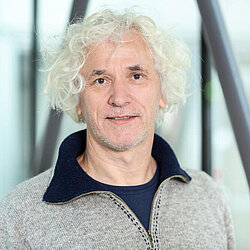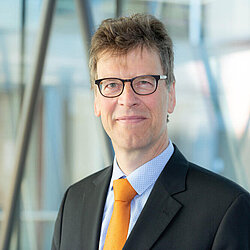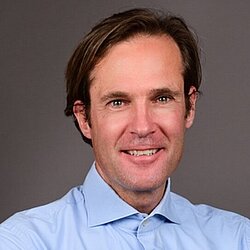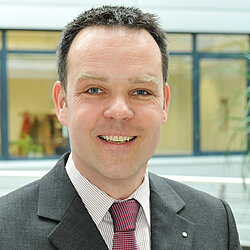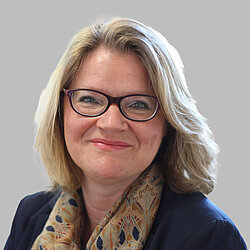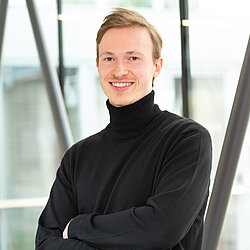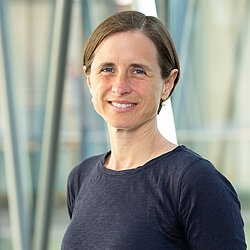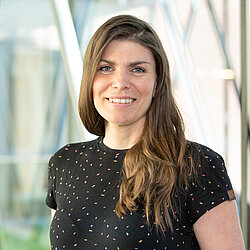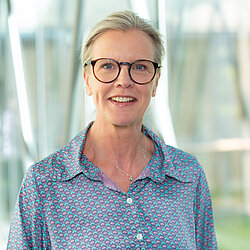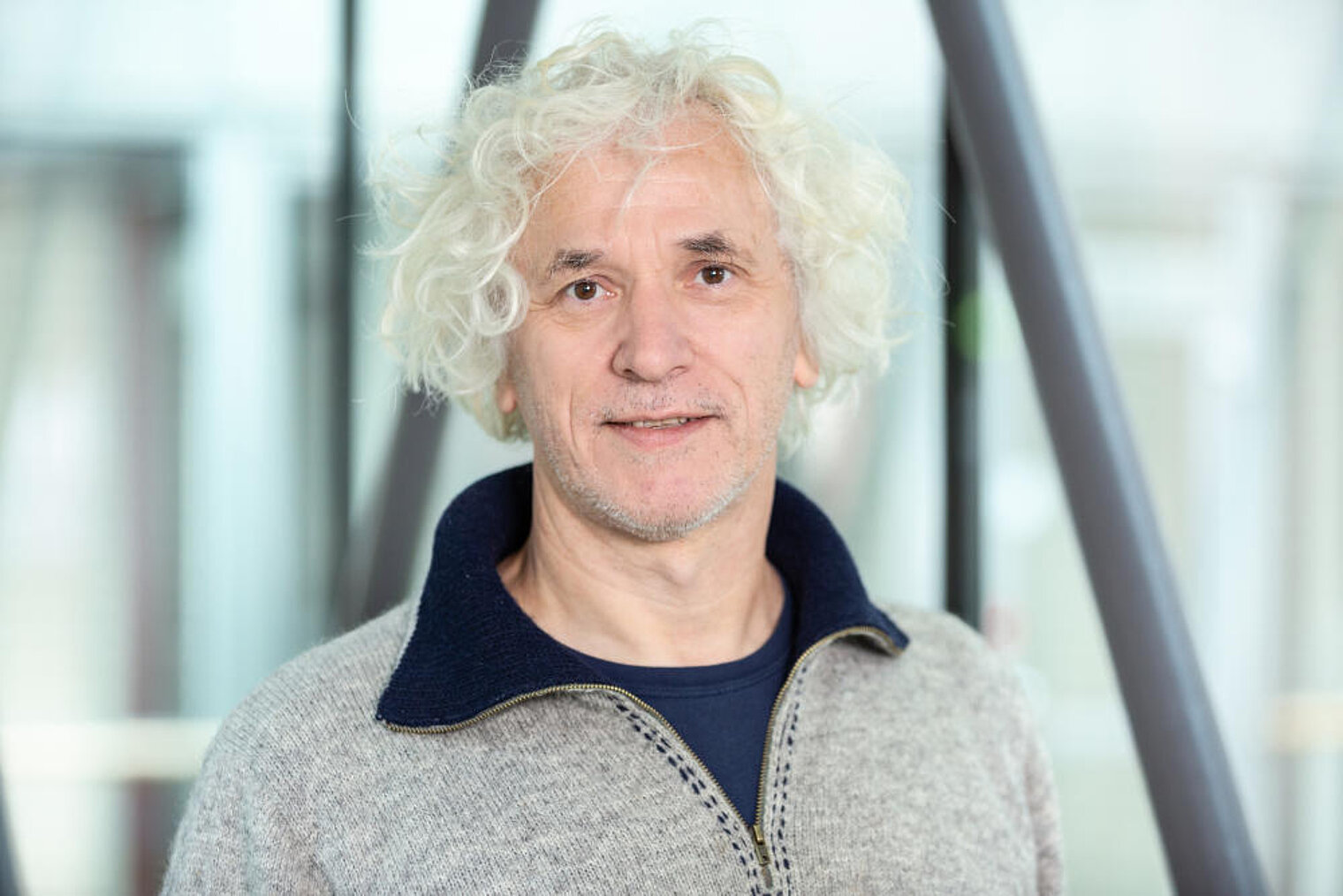Management
The Helmholtz Centre for Infection Research (HZI) is organised in the form of a GmbH (equals “Ltd.”). Shareholders are the Federal Republic of Germany (90 percent) and the federal states Lower-Saxony (eight percent), Saarland (one percent) and Free State of Bavaria (one percent).
The shareholders' meeting, as the supreme management body of the HZI, meets at least once a year, takes the most important directional decisions, appoints the two managing directors and decides on their discharge. Representatives of the shareholders - together with experts from universities, clinics, industry, other research centres and the HZI itself - form the supervisory board. The HZI Supervisory Board meets twice a year, supervises the legality, expediency and economic efficiency of the management and decides on important research policy and financial matters of the company. The Scientific Committee provides the Supervisory Board with expert advice. The Centre's middle management consists of the heads of the scientific departments, the administrative units and the staff units.
Josef Penninger was born on 5 September 1964 in Gurten, Oberösterreich. After attending medical school in Innsbruck, he started his scientific career at the University of Toronto, Canada. In 2002, he was the founding director of the Institute for Molecular Biotechnology IMBA – a research institute of the Austrian Academy of Sciences in Vienna. In 2018, he returned to Canada as a Canada 150 Chair and took over the Life Sciences Institute at the University of British Columbia in Vancouver. Starting from 1 July 2023, he has been appointed as Scientific Director of the HZI in Braunschweig.
Since 1995 Josef Penninger has been receiving multiple competitive research grants in the EU and North America, among those a C150 Canada Research Chair in Functional Genetics, an Innovator Award from the US, an EU Excellence Grant, as well as an ERC Advanced Grant.
Josef Penninger has earned a long list of awards and honorary awards. Among those are the Ernst-Jung-Price for Medicine, the Descartes-Price (highest European award) and the Wittgenstein-Price, also referred to as the “Austrian Nobel Price”. In 2015 he placed 11th in the ranking of the most influential thought leaders in German-speaking countries. Additionally, he was among the Top 10 of the most cited scientists worldwide twice, has been given an Honorary Professor title of the Chinese University of Qingdao and is a recipient of the Austrian Cross of Merit.
Christian Scherf
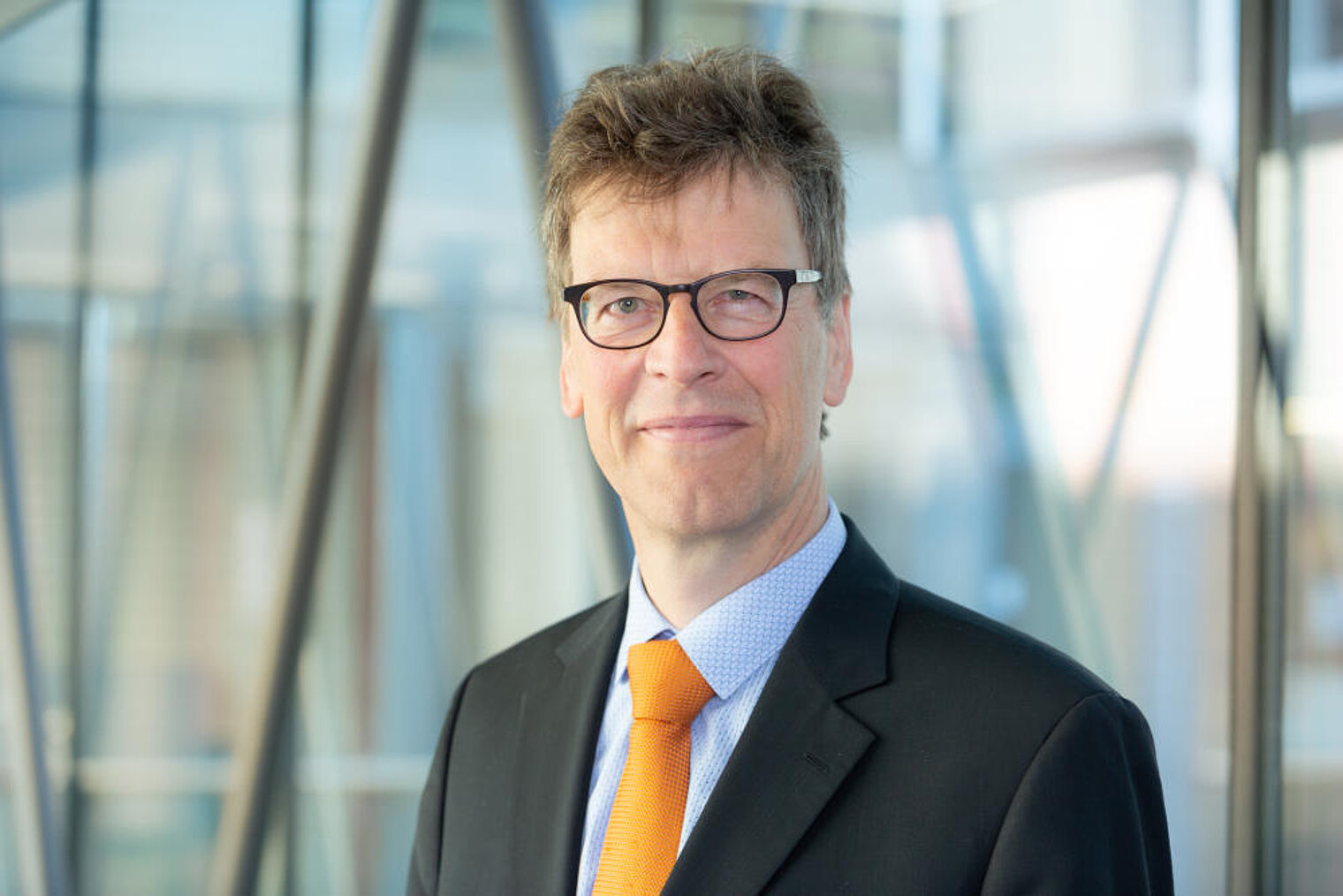
Born in Hoya in Lower Saxony, Christian Scherf studied law in Freiburg /Brsg. and international and European law in Dijon, France. He completed both his state examinations and his legal traineeship in Frankfurt am Main. Christian Scherf's interest in international contacts began at a very early age. After graduating from high school, he worked for a year as a volunteer for the UN High Commissioner for Refugees in Costa Rica, helping refugees.
After later positions as a young lawyer at the EU Commission in Brussels, as a government councillor of the Free and Hanseatic City of Hamburg and various management positions in supra-regional education, science and research funding, he took over the commercial management of the GKSS Forschungszentrum Geesthacht GmbH (now HEREON) in 2000. In 2002, he moved to the German Electron Synchrotron DESY as Commercial Director. From 2015-2020, Christian Scherf served as Administrative Director of the European Molecular Biology Laboratory in Heidelberg. In 2020, he took on a new challenge as Founding Chancellor and later Chancellor of the Berufliche Hochschule Hamburg. Since the beginning of January 2023, Christian Scherf has led the HZI as Administrative Director.
He is also Chairman of the University Council of the European University in Flensburg and a member of the Board of Trustees of the American Field Service (AFS).
Markus Cornberg
![[Translate to English:] Portrait Markus Cornberg](/fileadmin/_processed_/a/5/csm_hzi_1902_markus-cornberg_ciim_mhh_003_9299fb5b3e.jpg)
Markus Cornberg is a university professor of infectious diseases with a focus on hepatology and deputy director of the Department of Gastroenterology, Hepatology and Endocrinology at the Medical School. His clinical focus is the treatment of patients with infectious liver diseases. In 2019, he was also appointed Clinical Director of the HZI and Director of the Centre for Individualised Infection Medicine (CiiM).
Prof. Cornberg has been involved as a responsible physician in numerous clinical trials investigating new drugs for the treatment of viral infections of the liver. He was the first scientific secretary of the Competence Network Hepatitis (HepNet) in 2002. In February 2005, he took over the management of HepNet and, since 2007, the medical management of the German Liver Foundation. Since 2007 he has been involved in the preparation and revision of the German guidelines on viral hepatitis B, C and D. Since 2007, Prof. Cornberg has coordinated the preparation of the S3 guideline on the management of hepatitis B virus infection. In 2012, he was the German representative for the preparation of the European Hepatitis B Guideline. From 2017 to 2020, Prof. Cornberg was a member of the Governing Board of the European Association for the Study of the Liver (EASL). His basic science research focuses on the importance of cellular immune responses for disease progression and treatment response in patients with viral hepatitis. Prof. Cornberg has published more than 300 original scientific papers as well as review and book chapters.
Thomas Pietschmann
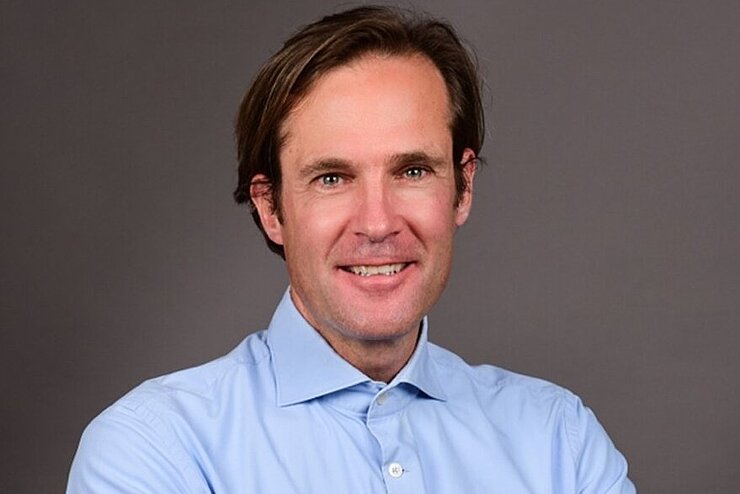
Thomas Pietschmann, born in Würzburg, studied biology at the Julius Maximilian University of Würzburg and Duke University, Durham USA. In 2000, he received his doctorate at the Institute of Virology at the University of Würzburg on mechanisms of virus morphogenesis in retroviruses and joined Professor Ralf Bartenschlager's group at the Institute of Virology in Mainz as a postdoc. In 2002 he moved to the Department of Molecular Virology at Heidelberg University together with Bartenschlager. In 2006 Thomas Pietschmann founded an Emmy Noether junior research group that focused on the morphogenesis and entry mechanism of the hepatitis C virus. In spring 2007 he and his working group were appointed to TWINCORE. Since 2012 he is head of the Department of Experimental Virology at TWINCORE and has been spokesman for the Helmholtz program “Infection Research” since 2021. In 2023 he joined the HZI management team as scientific co-director and was elected to the executive board of the German Center for Infection Research (DZIF).
Jörg Schinkel
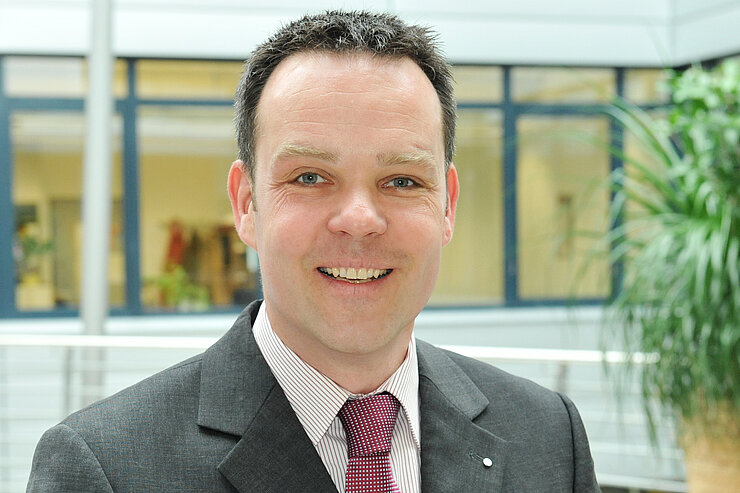
Born in Hamburg, Jörg Schinkel studied social economics, specializing in business administration, at the University of Hamburg. After graduating with a degree in business administration with a focus on human resources management and labour law, he entered the non-university research world at the former Heinrich Pette Institute (now the Leibniz Institute for Virology) in Hamburg as head of human resources. He was also entrusted with the position of Deputy Administrative Director. After 7 years, Jörg Schinkel took the professional step to Braunschweig to take on the next challenge at a much larger research center, the Helmholtz Centre for Infection Research, and took over the center's HR department. Jörg Schinkel has been established there since 2009 and has also been deputy Administrative Director since November 2023.
Supervisory Board
The Supervisory Board oversees the legality, expedience and economy of the management. It decides on general research goals, the principal research policy and financial affairs of the centre. It consists of a maximum of 15 members.
- MinDir'in Prof. Dr. Veronika von Messling, Bundesministerium für Bildung und Forschung (Chair)
- Ministerialdirigent Rüdiger Eichel, Niedersächsisches Ministerium für Wissenschaft und Kultur (Deputy Chairman)
- Dr. Irene Keinhorst, Bundesministerium für Gesundheit
- Dr. Jens Rosenbaum, Saarland - Ministerium für Wirtschaft, Innovation, Digitales und Energie
- Frau Ministerialrätin Astrid Lagall, Bayrisches Staatsministerium für Wirtschaft, Landesentwicklung und Energie
- Prof. Dr. med. Michael Manns, Medizinische Hochschule Hannover
- Prof. Dr. Christoph Dehio, Universität Basel
- Prof. Dr. med. Simone Scheithauer, Georg-August-Universität Göttingen
- Dr. Gerd Maass, Roche Diagnostics GmbH
- Prof. Dr. Luka Cicin-Sain, Helmholtz-Zentrum für Infektionsforschung
- Prof. Dr. Mark Brönstrup, Helmholtz-Zentrum für Infektionsforschung
- Prof. Dr. Percy A. Knolle, Technische Universität München
- Prof. Dr. Susanne Herold, Universtätsklinikum Gießen und Marburg
Scientific Advisory Commitee
The Scientific Advisory Committee consists of members of the Supervisory Board and external scientific experts. It advises the Supervisory Board with regard to the Research&Development programme as well as general research strategy of the Helmholtz Centre for Infection Research.
- Prof Dr Eleanor Barnes, University of Oxford
- Dr Karina De Bivar, Instituto Gulbenkian de Ciência
- Dr Harald Dinter, Bayer Pharma AG Wuppertal
- Prof Dr Irmgard Förster, University of Bonn
- Prof Dr Susanne Herold, Universitätsklinikum Gießen und Marburg
- Prof Dr Percy A. Knolle, Technical University of Munich
- Prof Dr Nataša Pržulj, University College London
- Prof Dr Paul Wilmes, University of Luxembourg
- Prof Dr Marianne Van der Sande, Institute of Tropical Medicine Antwerp
- Prof Dr Jutta Heim, Scientific Advisory Committee GARDP/DNDi
- Univ.-Prof Dr med Mathias W. Pletz, Universitätsklinikum Jena
- Prof Dr Darius Moradpour, Lausanne University Hospital
- Dr Chikwe Ihekweazu, WHO Emergencies Programme
- Dr Heinz Moser, Novartis Institutes for Biomedical Research
Members of Executive Management
